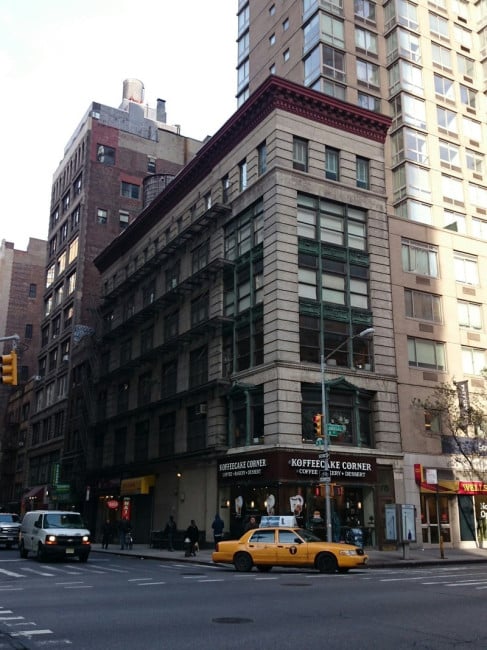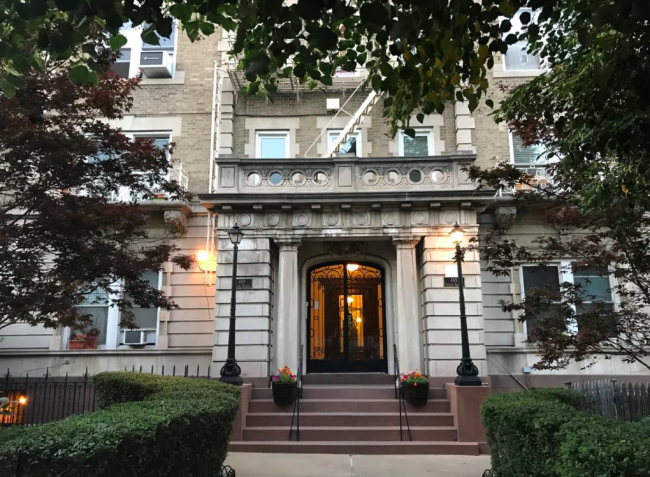Choosing between a big or small co-op building in NYC? Here's what you should ask

Do you want to pitch in to help run your building or stay anonymous?
iStock
If you're in the market for a New York City co-op, you know that there are a lot of different kinds of buildings here, and you might be wondering which size is better.
The New York City cooperative scene is one of the country’s most vibrant—with 31 percent of homeowners choosing this kind of ownership, according to U.S. Census data. The city is home to the world’s largest co-op building, Co-op City in the Bronx with 15,000 apartments. There are also multiple-family townhouses that have been converted into cooperatives and have fewer than 10 units.
“You can find buildings of every stripe in this city,” says Mary Ann Rothman, corporate secretary of the Council of New York Cooperatives and Condominiums.
Small buildings that are well-managed can provide welcome community in the city but if you get intrusive neighbors and an inept board, it could put you off homeownership for life. Larger co-op buildings don't typically provide the same community spirit but as they have more shareholders, there are more buffers in place if things go wrong. Here's what you need to know if you're making a decision about shareholding in a co-op building.
Who manages the building?
Typically, buildings with less than 15 units are self-managed, so there are no costs associated with paying a company to run the day-to-day operations of the building. While this might provide some savings, the flip side is there will be more pressure for you to get involved.
“If a building is self-managed, then anyone who lives in the building should expect to take an active role in its management and operation,” says Rothman. She adds, “that might mean serving on the board or providing other valuable skills, be it architectural or financial. In a self-managed building, it’s the board and committees that make things go.”
Gabriel Leibowitz, real estate broker with Douglas Elliman, says you’ll want to find out what the expectations are for new shareholders before buying. Ask whether there’s someone to handle common area cleaning or snow removal. Find out if there’s a super on call or at least a handyman the building uses regularly.
“Self-managed co-ops can be wonderful,” says Leibowitz. “If they’re run smoothly, maintenance is lower and there’s less bureaucracy. On the other hand, there can be headaches if the board doesn’t have clear systems in place for functional operations, leading to building problems, issues with paying the bills and delays in processing and approving board packages.”
How is the building set up financially?
The smaller the building, the more important it is to know its financial and structural health. Real estate attorney Adam Stone of The Stone Law Firm says smaller buildings usually don’t have much of a reserve fund and rely heavily on each monthly maintenance payment in order to meet expenses. He recommends getting an inspection of the whole building, not just the apartment.
“Unlike a larger building, which typically has a nice reserve fund and a lot more owners to spread the cost around, if a five-unit building needs $100,000 for a new roof, you know who they’re going to come looking to for $20,000,” he says.
Leibowitz encourages buyers to get a look at the co-op minutes.
"In a smaller building, there often won’t be as many as there might be in a bigger building, but you want to see no red flags that hint at problems or behind the scenes dysfunction,” he says.
Are you prepared to get involved?
Whether you like it or not, in a small co-op you are going to have to get to know your neighbors.
Manhattan resident Mela Bolinao bought into a co-op with just five units several years ago. “We thought being in a small co-op would be easier,” she says, “everyone in the co-op is on the board, which you think would be great but because it’s such a small group, nothing gets done without everyone’s approval. At the end of the day, it does create a little bit more stress in the building.”
Stone points out that in a small building the owners rely on each other to be financially stable and pay their monthly maintenance on time. “If one owner in a 100 unit building was a few months behind, it probably wouldn’t affect the building’s cash flow much. But if one of five owners was several months behind, the building is missing 20 percent of its income and may have a problem paying property taxes and insurance,” he says.
What kind of experience are you looking for?
A lot of people prefer the true cooperative feel of a small building over the anonymity and potential bureaucracy of a larger building.
“In a small building when everything goes well, there’s nothing better," says Mary Ann Rothman of CNYC. “You have a real sense of community and people work together. Small can be fantastic but it can be a serious degree worse when things go awry because you’re rubbing elbows on a daily basis with the person with whom you had a terrible argument.”
In a bigger building, there are more buffers in place. You can avoid serving on the board and can be a little more anonymous. Rothman would still recommend trying to contribute to the health of the building, “It may be hard to get onto the board in a huge building but they may really need someone for the garden committee or the holiday part committee and if there are no committees, you can start building them. You can and should try to be a part of whatever community you bring yourself to.”
What amenities do you want?
Smaller buildings are less likely to have the perks like a doorman or gym that come with bigger buildings. If it’s important for you to have someone to take packages, you probably won’t get that in a small co-op.
Retiree, Patricia Paz, recently bought into a co-op on the Upper East Side and didn't want the gym or playroom facilities offered by some of the larger co-ops.
"I didn’t want to pay fees for amenities I wouldn’t use. I did want a doorman though, so I was never going to end up in a very small building,” she says.
Amenities don't come for free. Leibowitz says the glamour factor of a bigger building with lots of frills has ramifications for the monthly expenses, so it's important to work out early whether you're willing to pay for those extras.





























